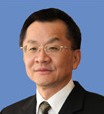
The 2nd International Conference on
Fuzzy Systems and Data Mining
Fuzzy Systems and Data Mining

 |
Prof. Shu-Cherng Fang North Carolina State University Raleigh USA |
|
Biography: BS (National Tsing Hua University); MA (Johns Hopkins University); PhD (Northwestern University) Shu-Cherng Fang holds the Walter Clark Chair Professorship in Industrial Engineering and Alumni Distinguished Graduate Professorship at North Carolina State University, USA. He is also Chair Professor and Team Leader of Chair Professors in Mathematical Sciences and Industrial Engineering at Tsinghua University, University Chair at Fudan University, Honorary University Professor of Northeast University, Honorary University Professor of Shanghai University, Graduate University Advisory Professor of the Chinese Academy of Sciences, Honorary University Chair Professor of National Chiao Tung University and Honorary IEEM Chair Professor of National Tsinghua University. Before joining NC State, Professor Fang was Senior Member of Research Staff at Western Electric Engineering Research Center, Supervisor at AT&T Bell Labs, and Department Manager at the Corporate Headquarters of AT&T Technologies. Professor Fang has published over two hundred refereed journal articles. He authored the books of Linear Optimization and Extensions: Theory and Algorithms (Prentice Hall 1993, with S. C. Puthenpura), Entropy Optimization and Mathematical Programming (Kluwer Academic 1997, with J.R. Rajasekera and H.-S. Tsao), and Linear Conic Optimization (Science Publisher 2013, with Wenxun Xing). He currently serves on the editorial board of 24 scientific journals, including Optimization, Journal of Global Optimization, Optimization Letters, Pacific Journal of Optimization, Journal of Management and Industrial Optimization, Journal of Operations and Logistics, International Journal of Operations Research, OR Transactions, Journal of Uncertainties, International Journal of Fuzzy Systems, Iranian Journal of Fuzzy Systems, Journal of Chinese Institute of Industrial Engineers and Journal of the Operations Research Society of China. He is also the Editor-in-Chief of Fuzzy Optimization and Decision Making. Professor Fang has won many awards and has been listed in several major biographic references. His research interests include Nonlinear Programming, Fuzzy Optimization and Decision Making, Soft Computing, and Logistics and Supply Chain Management. Speech Title: Intuitionistic Fuzzy Set-based Semi-supervised Support Vector Machine for Binary Classification with Mislabeled Information Abstract: Robust and fuzzy support vector machine models are commonly used to handle binary classification problems with noise and outliers. These models often suffer from the adverse effects caused by mislabeled training points and disregard the valuable position information carriedby such points. In this talk, we present a novel approach to address this issue. An intuitionistic fuzzy set is adopted for detecting “suspectable” mislabeled training points first. Then a semi-supervised support vector machine model is constructed by omitting suspected labels but utilizing their position information. This model can be reformulated as a non-convex quadratically constrained quadratic programming problem. We specially design a branch-and-bound algorithm with a new lower bound estimator to improve the accuracy and efficiency in computations. Some numerical tests are conducted to benchmark the performance of the proposed method vs. other support vector machine models. The results strongly support the superiority of the proposed approach. |
|

|
|
 |
Prof. Dr.-Ing. Jianhua Zhang Intelligent Systems Group Department of Automation School of Information Science and Engingeering East China University of Science and Technology Shanghai 200237, P.R. China |
|
Biography: BSc (Jiangxi University of Science and Technology, China); MSc (Beijing University of Technology, China); PhD (Ruhr-University Bochum, Germany) Jianhua Zhang was born in Shaanxi, China in 1971. He received MSc degree in Control Theory and Applications from Beijing University of Technology, China, in April 1996 and PhD degree in Electrical Engineering under the supervision of Prof J.F. Böhme from Ruhr-Universität Bochum, Germany in Feb. 2005. Between 1999 and 2002 he was a Lecturer at Department of Automation, Beijing University of Technology. Afterwards he worked for three years as Guest Scientist and Scientific Coworker at Institute of Automation (Prof K. Janschek), Technische Universität Dresden and Signal Theory Group (Prof J.F. Böhme), Ruhr-Universität Bochum, both in Germany, respectively. More... Speech Title: Prediction and Regulation of Operator Functional State Using Electrophysiological Data and Fuzzy Rule-based Models Abstract: From the viewpoint of technical feasibility, economy and safety, one has realized that the implementation of fully-automated system to completely replace humans is impractical and human factors always exist in many complex sociotechnical systems. Therefore, the study of human-machine (HM) integrated systems has become an emerging research topic in the field of control systems and automation technology. In safety-critical HM systems, even a seemingly small/trivial accident may likely cause huge loss of lives or properties. The operator performance degradation or breakdown due to the deteriorated operator functional state (OFS) has been found to be one of main reasons of such accidents. More... |
|

|
|
 |
Prof. Xizhao Wang Big Data Institute College of Computer Science and Software Engineering ShenZhen University ShenZhen 518060, China |
|
Biography: BS and MA (Hebei University); PhD (Harbin Institute of Technology) Xizhao Wang received his PhD in computer science from Harbin Institute of Technology on September 1998. From 2000 to 2012 Dr. Wang served in Hebei University as a professor and the dean of school of Mathematics and Computer Sciences. From 2013 to now Dr. Wang worked as a professor in Big Data Institute of ShenZhen University since 2013. Prof. Wang’s major research interests include uncertainty modeling and machine learning for big data. Prof. Wang has edited 6+ special issues and published 3 monographs, 2 textbooks, and 150+ peer-reviewed research papers. By the Google scholar, the total number of citations is over 3000 and the maximum number of citation for a single paper is over 200. The H-index is 25 up to March 2015. Prof. Wang is on the list of Elsevier 2015 most cited Chinese authors. As a Principle Investigator (PI) or co-PI, Prof. Wang's has completed 30+ research projects. Prof. Wang is an IEEE Fellow, the previous BoG member of IEEE SMC society, the chair of IEEE SMC Technical Committee on Computational Intelligence, and the Chief Editor of Machine Learning and Cybernetics Journal. Speech Title: Learning from Uncertainty for Big Data Abstract: Big data refers to the datasets that are so large that conventional database management and data analysis tools are insufficient to work with them. Big data has become a bigger-than-ever problem with the quick developments of data collection and storage technologies. Model simplification is one of the most popular approaches to big data processing. After a brief tutorial of the existing techniques of processing big data, this talk will present some key issues of learning from big data with uncertainty, focusing on the impact of handling uncertainty on the model simplification. It shows that the representation, measure, and handling of the uncertainty have a significant influence on the performance of learning from big data. Some new advances in our Big Data Institute regarding the research on big data analysis and its applications to different domains are briefly introduced. | |

|
|
 |
Prof. C. L. Philip Chen University of Macau Macau China |
|
Biography: BS (National Taipei University of Technology); MA (The University of Michigan); PhD (Purdue University) C. L. Philip Chen (S’88–M’88–SM’94–F’07) received his M.S. degree in electrical engineering from the University of Michigan, Ann Arbor, in 1985 and the Ph.D. degree in electrical engineering from Purdue University, West Lafayette, IN, in 1988. He is currently the Dean of the Faculty of Science and Technology, University of Macau, Macau, China and a Chair Professor of the Department of Computer and Information Science after having worked at U.S. for 23 years as a tenured professor, as a department head and associate dean in two different universities. Dr. Chen’s research areas are in systems, cybernetics and computational intelligence. He is a Fellow of the IEEE and AAAS. He was the President of IEEE Systems, Man, and Cybernetics Society (SMCS) (2012-2013). Currently, he is the Editor-in-Chief of IEEE Transactions on Systems, Man, and Cybernetics: Systems (2014-), and is an Associate Editor of IEEE Trans on Fuzzy Systems, IEEE Trans on Cybernetics, IEEE/CAA Automatica Sinica, and several IEEE Transactions. He is the Chair of TC 9.1 Economic and Business Systems of IFAC. He is also a Fellow of CAA and Fellow of HKIE and an Academician of International Academy of Systems and Cybernetics Science (IASCYS). In addition, he is an ABET (Accreditation Board of Engineering and Technology Education, USA) Program Evaluator for Computer Engineering, Electrical Engineering, and Software Engineering programs. Speech Title: A Fuzzy Restricted Boltzmann Machine: An Approach to Enhance Deep Learning Abstract: In recent years, deep learning caves out a research wave in machine learning. With outstanding performance, more and more applications of deep learning in pattern recognition, image recognition, speech recognition, and video processing have been developed. Restricted Boltzmann machine (RBM) plays an important role in current deep learning techniques, as most of existing deep networks are based on or related to it. In particular, deep belief networks and deep Boltzmann machines are formed by stacking RBMs layer by layer and optionally fine-tuning the resulted deep networks with a backpropagation algorithm. RBMs have been widely applied in diverse fields, such as image recognition and classification, dimensionality reduction, feature learning, and collaborative filtering, etc. This talk will introduce a Fuzzy Restricted Boltzmann Machine (FRBM) that is established by replacing real-valued weights and bias terms with symmetric triangular fuzzy numbers (STFNs) or Gaussian fuzzy numbers and corresponding learning algorithms. A theorem is concluded that all FRBMs with symmetric fuzzy numbers will have identical learning algorithm to that of FRBMs with STFNs. Experiments results in MNIST handwriting recognition and Bar-and-Stripes benchmark indicate that the proposed FRBMs significantly outperform RBMs in learning accuracy and generalization ability, especially when encountering unlearned samples and recovering incomplete images. | |

|
|